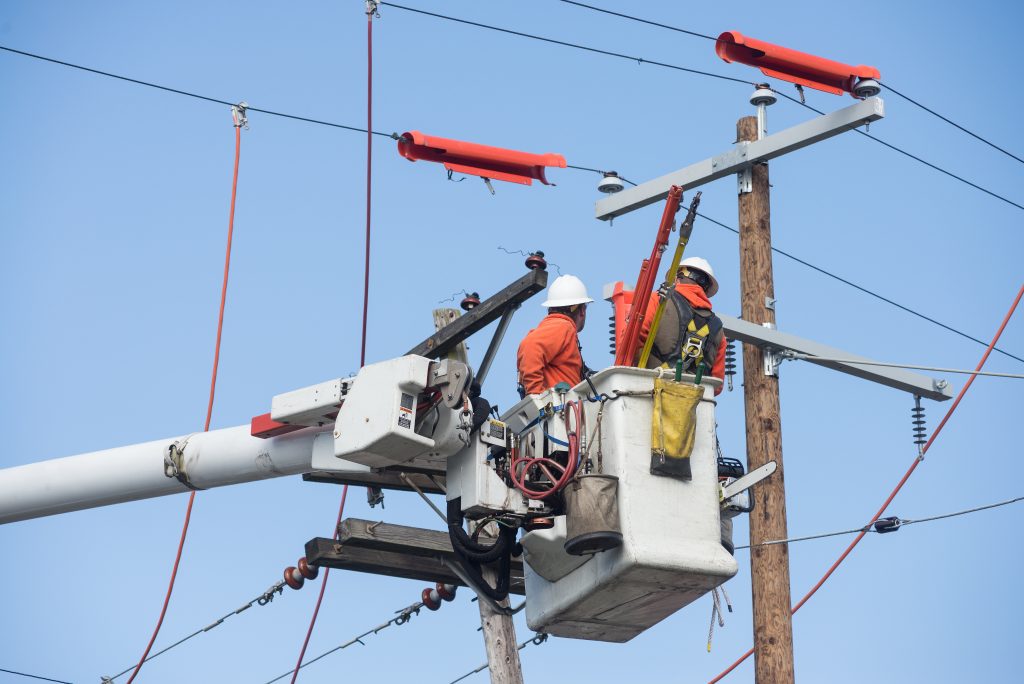Market competition can lead to competitive pricing, as multiple energy providers strive to offer the most attractive rates to consumers.

No, there are no switching fees when you switch to Peace Power. With Peace Power, you won’t sign a long-term agreement, or pay sign-up or exit fees. We understand you may be trying something new so we want to make your experience as comfortable and risk-free as possible.
In Alberta, Canada, utility rates are determined through a combination of market forces and regulatory mechanisms. The province’s energy market is deregulated, meaning that consumers have the option to choose their energy providers for electricity and natural gas. For electricity, prices are influenced by factors such as supply and demand, fuel costs, and transmission charges. The Alberta Electric System Operator (AESO) oversees the wholesale electricity market and ensures that it operates fairly and efficiently. In contrast, natural gas prices are largely influenced by North American market conditions. Consumers can choose either a regulated rate option or a contract price with competitive retailers. The regulated rate option is a default electricity or natural gas rate that fluctuates monthly based on market prices. This option is available to consumers who do not choose a competitive retailer. The Alberta Utilities Commission (AUC) plays a significant role in overseeing and regulating the utility sector, ensuring that the rates are just and reasonable and that the service is safe and reliable. In addition to energy costs, utility bills also include distribution and transmission charges, municipal fees, and administration charges, which are regulated by the AUC to protect consumers. These components together contribute to the determination of utility rates in Alberta.
Data plays a critical role in modern utility management. Utilities use data to monitor and manage their infrastructure, to forecast and respond to demand, to identify and address inefficiencies, and to comply with regulatory reporting requirements. Data can also inform strategic planning and investment decisions, such as in infrastructure upgrades or the integration of new technologies. Furthermore, with the advent of smart meters and smart grids, utilities have access to more detailed and real-time data, enabling more precise and proactive management of utility services. At the same time, the increasing importance of data presents challenges related to data management, security, and privacy that utilities must address.
The Utilities Consumer Advocate (UCA) plays a critical role in Alberta’s energy landscape, acting as an intermediary between consumers, the energy industry, and regulatory bodies. Established by the Government of Alberta, the UCA’s mandate is to educate, advocate, and mediate for residential, farm, and small business electricity and natural gas consumers.
Government policy in Alberta has a multifaceted impact on utility rates through various means such as regulation, environmental initiatives, infrastructure investments, and consumer protections. Initially, Alberta’s shift towards the deregulation of electricity markets allowed for market forces to have a more significant role in determining prices. While this fostered competition and had the potential for lower prices, it also introduced an element of volatility. Environmental policies, such as carbon taxes or incentives for renewable energy, also play a role. For instance, policies aimed at reducing carbon emissions might increase the costs of fossil fuel-based energy production, which could be reflected in consumer prices. Conversely, incentives for renewables could lead to more stable or lower prices in the long term. The government also engages in infrastructure investments and enacts regulations that may require utility companies to modernize their facilities. Though essential for the reliability and modernization of the grid, these investments and regulations can lead to higher costs that are often passed on to consumers. Additionally, trade policies, especially on a national level, can affect utility rates in Alberta by influencing the cost of energy-related equipment. Finally, government policies aimed at consumer protection, market oversight, and emergency response are vital in maintaining fair pricing and ensuring reliable service. The interplay of these various policies and initiatives helps shape the landscape of utility rates in Alberta.
In Canada, the range of utilities that residents typically pay for includes electricity, natural gas, water, and sewage services. Electricity and natural gas bills cover the costs of heating, lighting, and running appliances in the home, with costs varying depending on usage and geographical location. Water and sewage services are also essential utilities, with charges often based on usage or a flat rate, depending on the municipality. Additionally, many Canadians pay for telecommunications services, including internet, telephone, and cable TV. In colder regions, expenses for heating can be higher, especially for those using natural gas or oil for home heating. It’s also common for residents in condominiums or apartment complexes to pay a monthly fee that covers a portion of these utilities, along with other services like garbage collection and maintenance of common areas.
Links